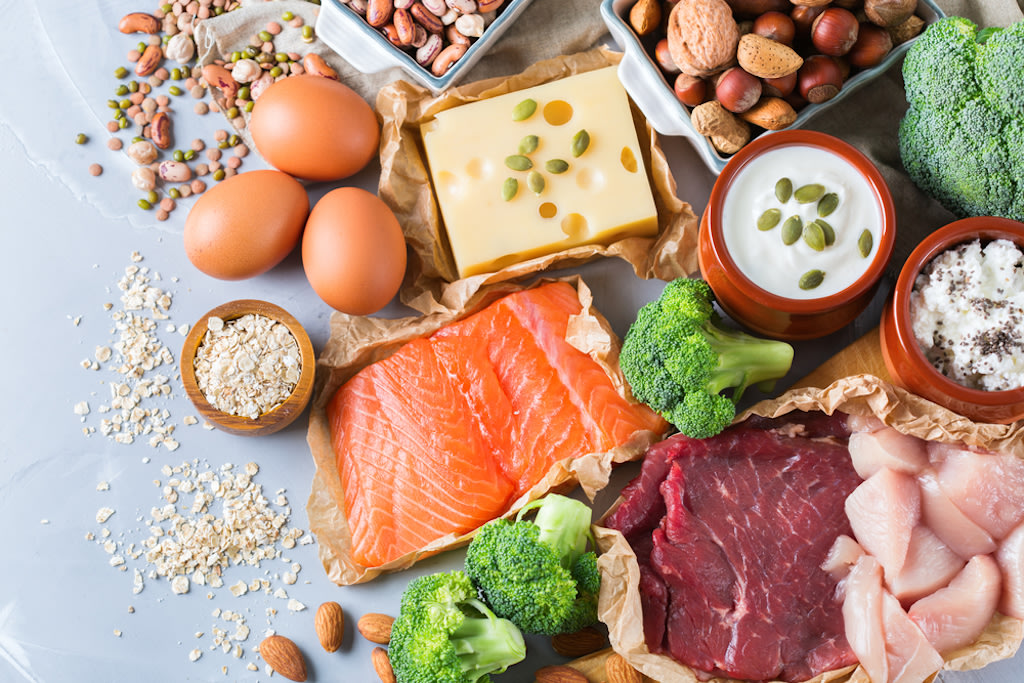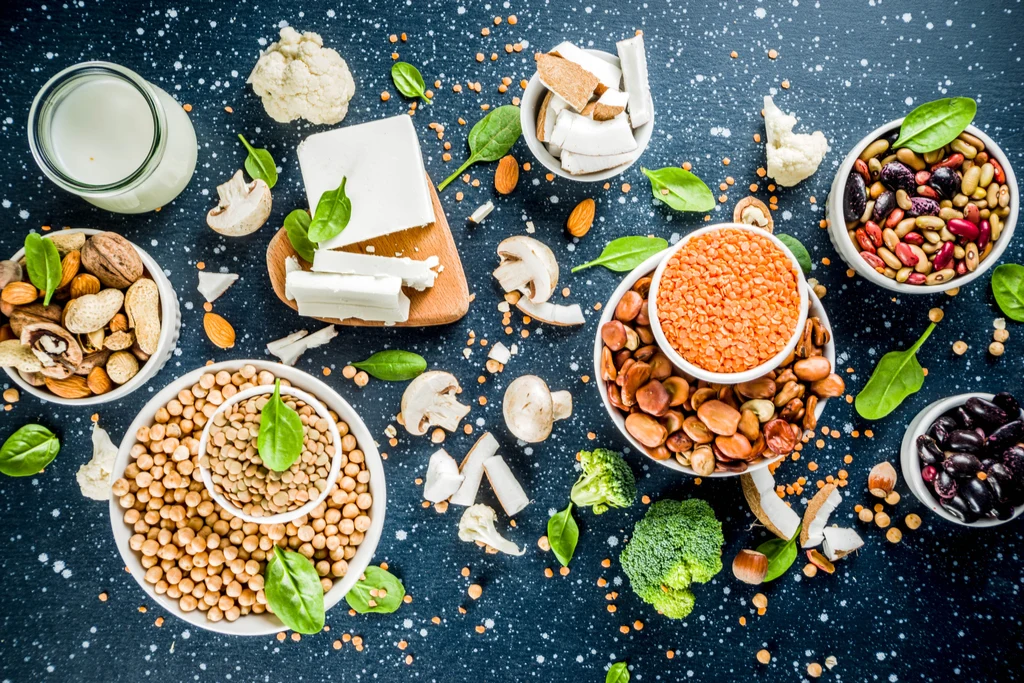6 Protein Myths That Are Affecting Your Health

June 1, 2018 - Updated July 19, 2022

A wholesome and varied diet is so important when it comes to keeping your health on track and reaching your fitness goals. If you don’t fuel your body properly, you are less likely to see and feel the results you want!
In order to achieve optimal health benefits, you need to consume protein. Protein is an essential macronutrient that does a lot of good work throughout your body. It is important for functions such as the structure and maintenance of the body’s tissues and organs, as well as helping build and repair muscle tissue.
When high-protein diets or “hitting your macros” are a common topic of health discussions, it can be quite confusing to work out how much protein you need, when to consume it and if you can overdo it.
6 Protein Myths We All Need To Stop Believing
To try and help you make sense of it all, we’ve broken down six common protein myths that might be impacting your diet:
Myth 1: For muscle growth, the more protein, the better
A common misunderstanding is that the more protein you have, the better your results will be. While protein is an essential macronutrient to include in your diet and is involved in many important bodily functions, this does not mean you need to eat an excessive amount to reap the rewards.
According to the Australian Dietary Guidelines, the recommended daily intake for women is 46 g/day or 0.8 grams per kilogram of body weight (there are 0.36 grams in a pound). Since this is a general recommendation which doesn’t necessarily take into account your level of physical activity and lifestyle, you might need more if you workout regularly.
It’s also important to remember your body can only absorb a certain amount of protein per meal. This makes it important to spread your protein consumption over the course of the day and try to incorporate a protein source into every meal.
This also means once you hit a certain amount (which will vary depending on your body and lifestyle), your body will begin to excrete it because it can’t absorb any more.
If you’ve never tracked your protein intake or follow a vegetarian or vegan diet, tracking your daily intake can help to see if your body is getting what it needs and which high protein foods offer the most nutrition.
Myth 2: As long as you eat enough protein each day, timing doesn’t matter
As we’ve already touched on, your body can only absorb a certain amount of protein at one time, so including a good source of protein at every meal is important, rather than trying to eat it all in one go!

Myth 3: All protein sources are equal
If you want to increase your protein intake, it pays to understand that different foods vary in their protein content as well as nutritional value.
Eating whole protein foods such as quinoa, beans, lean meat, dairy and eggs will allow you to take advantage of additional nutritional benefits such as vitamins, minerals and fibre (and minus the sweeteners and additives in protein powder or bars), but their protein content does differ significantly.
If we compare chicken, eggs and tofu as an example, chicken has about 27g of protein per 100g, while two eggs (approx 100g) would have around 12g and the same amount of tofu has about 8g.
This doesn’t mean you should only eat foods with the highest protein content, but it’s helpful to know in terms of meal planning or for those days when you opt for plant-based dishes.
Myth 4: You can never have too much protein
Apart from the fact your body can only absorb so much, a protein-heavy diet can mean you can start to neglect other food groups and miss out on important nutrients, such as fruit, starchy vegetables, leafy greens and whole grains.
2013 research exploring the effects of consuming protein above the recommended daily intake (RDI) found no scientific basis for encouraging protein consumption above the RDI due to the potential health risks. These include burdening the bones, liver and kidneys, as well as an increased risk of heart disease and even some cancers.
Overdoing it with protein also can mean overdoing it on calories which in the long run can lead to weight gain, especially if you’re choosing protein sources high in fat.
Myth 5: Reducing protein intake is a good way to lose weight
Protein keeps you full and satiated as it takes longer to digest, so if you eat less of it, you may find yourself snacking more frequently throughout the day to keep yourself full.
Because protein is important for building and maintaining muscle, if you do experience weight loss from a low-protein diet, it’s often due to a loss of muscle mass rather than fat.
Reducing protein in an attempt to lose weight also isn’t going to leave you feeling your best, as it plays an important role in so many bodily functions.
Myth 6: Protein means animal products and you can’t build muscle on a plant-based diet
If you’re a vegetarian, vegan or flexitarian, you’ve probably heard this one before. Many people believe that if you don’t eat animal protein, you won’t be able to build muscle, but there are many nutritious plant-based protein sources such as tofu, tempeh, beans, nuts and quinoa.
Just like any diet, a plant-based one needs to be well-balanced but it certainly is possible to gain muscle without consuing meat!
If you’re vegetarian, remember to eat a variety of protein sources as many plant-based proteins are incomplete proteins, meaning they don’t contain all nine essential amino acids like animal-derived sources.
This isn’t an issue, as consuming a combination of plant-based foods can easily provide your body with all of the essential amino acids needed for a healthy and balanced diet.
Protein has a range of benefits and is vital to your health, especially if you’re leading an active lifestyle! In addition to the role it plays in your bodily functions, including protein into your diet can keep you fuller for longer, help build and maintain muscle, reduce cravings, and boost your metabolism.
Try to eat some protein at every meal, enjoy a variety of sources as part of a balanced diet, consider increasing your protein if you’re active or increasing your workouts, and you’ll be set!

A more empowered you starts with Sweat, and our editorial team is here to bring you the latest fitness tips, trainer recommendations, wellbeing news, nutritional advice, nourishing recipes and free workouts.
* Disclaimer: This blog post is not intended to replace the advice of a medical professional. The above information should not be used to diagnose, treat, or prevent any disease or medical condition. Please consult your doctor before making any changes to your diet, sleep methods, daily activity, or fitness routine. Sweat assumes no responsibility for any personal injury or damage sustained by any recommendations, opinions, or advice given in this article.
Nutrition